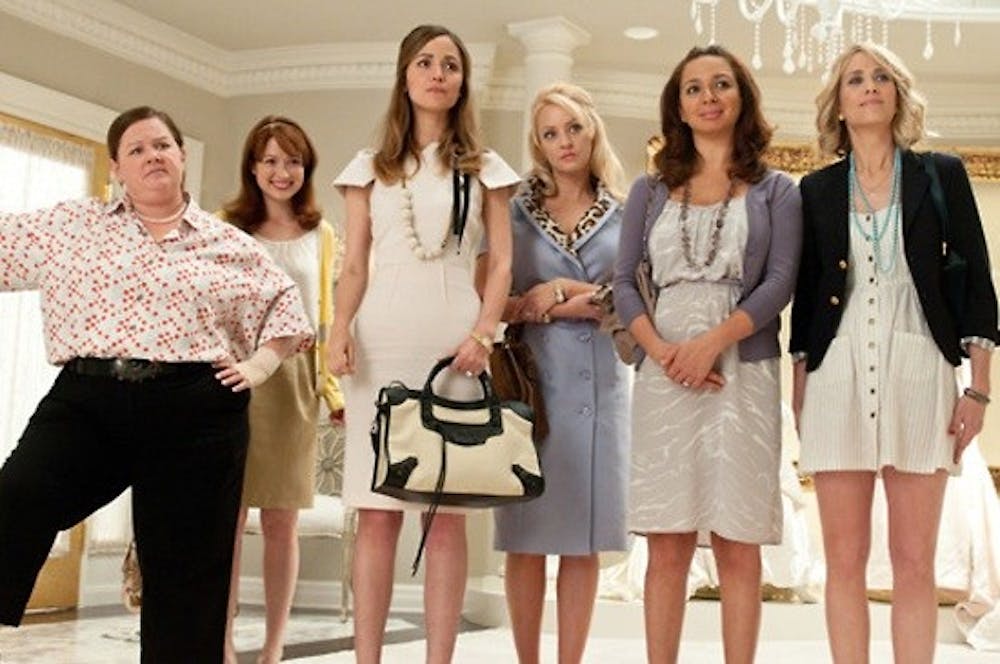That a comedy featuring a cast both led and dominated by females should immediately be regarded as an anomaly points to the unavoidable issue the genre has with women's representation. Yet despite the attention it has received for being a female–centric comedy that eschews connotations of chick flicks, Bridesmaids is not a film that seeks to make a political statement. Choosing to focus instead on assembling a talented cast and crafting an original story ripe for laughs, Bridesmaids nonetheless offers a powerful counterpoint to those who insist that women aren't funny.
Annie (Wiig) is a down–on–her luck single woman still reeling from the failure of her small business and dealing with a milieu of problems, including a pair of freakish roommates, a dead–end job and a sleazy rich guy who uses her for sex (Jon Hamm). When her best friend, Lillian (Rudolph), reveals her engagement and asks her to be the maid of honor, Annie is determined to pull her life together long enough to plan the perfect bridal shower. Once the motley–crew of bridesmaids is assembled, however, it becomes clear that Annie might not be cut out for the job, and that Lillian's new, irritatingly elegant friend, Helen (Byrne), is all too eager to assume the position.
From the first scene of the film, wherein Wiig and Hamm are depicted in a number of spatially confounding and visually hilarious sex positions, it's clear that Bridesmaids is a film unafraid of the same sort of risque humor that marks producer Judd Apatow's usual fare. Continuing within that mold, the film nevertheless distinguishes itself with its distinctly post–gendered point–of–view. Having failed in an independent venture, Annie seeks to prove herself among her peers, rivaling with another woman not for the affections of a man, but for a friend. Men are largely absent from the film, and its romantic angle, as sweetly as it plays out, nonetheless seems a side note in this story about women's relationships with one another.
Wiig puts forth an admirably rounded performance as a woman who refuses the optimism that others would force her way. Her embittered gaze guides our own, exposing not only the absurdity of the pomp and circumstance of weddings, but the ridiculous perception that women should digest all problems with pluck, making lemons into lemonade no matter how hopeless the situation. As a writer, she, along with co–writer Annie Mumolo, manages to create situations that are both absurd and completely relatable — aside from a gratuitous scene of potty humor that seems to shamelessly pander to the demographic that Apatow is afraid to lose. The right degree of raunch is provided by cast stand–out Melissa McCarthy, playing the sexually–liberated sister–in–law of Lillian, who, despite the other women's judgment, fiercely refuses to act like a "lady."
Bridesmaids is impossible not to become absorbed with, no matter your gender. The backdrop of a wedding does not engender the film's action, but rather functions as a finish line in an archetypal tale of an underdog battling forces that are all too real to the modern viewer. By the time the credits role, the discussion of gender roles will only serve to put a damper on the raucous and unabashedly fun atmosphere the film creates.
4/5 Stars Directed by: Paul Feig Starring: Kristen Wiig, Maya Rudolph, Rose Byrne Rated R, 125 min.

